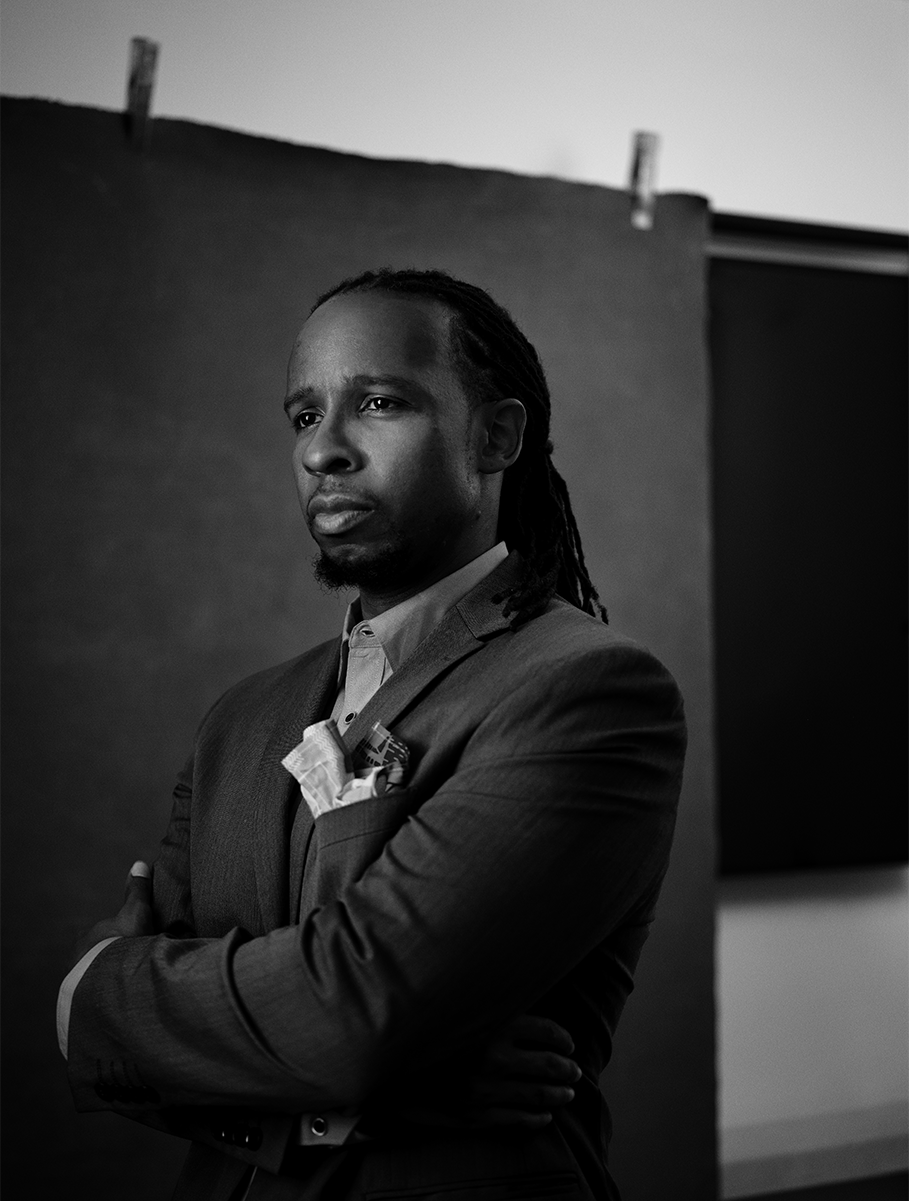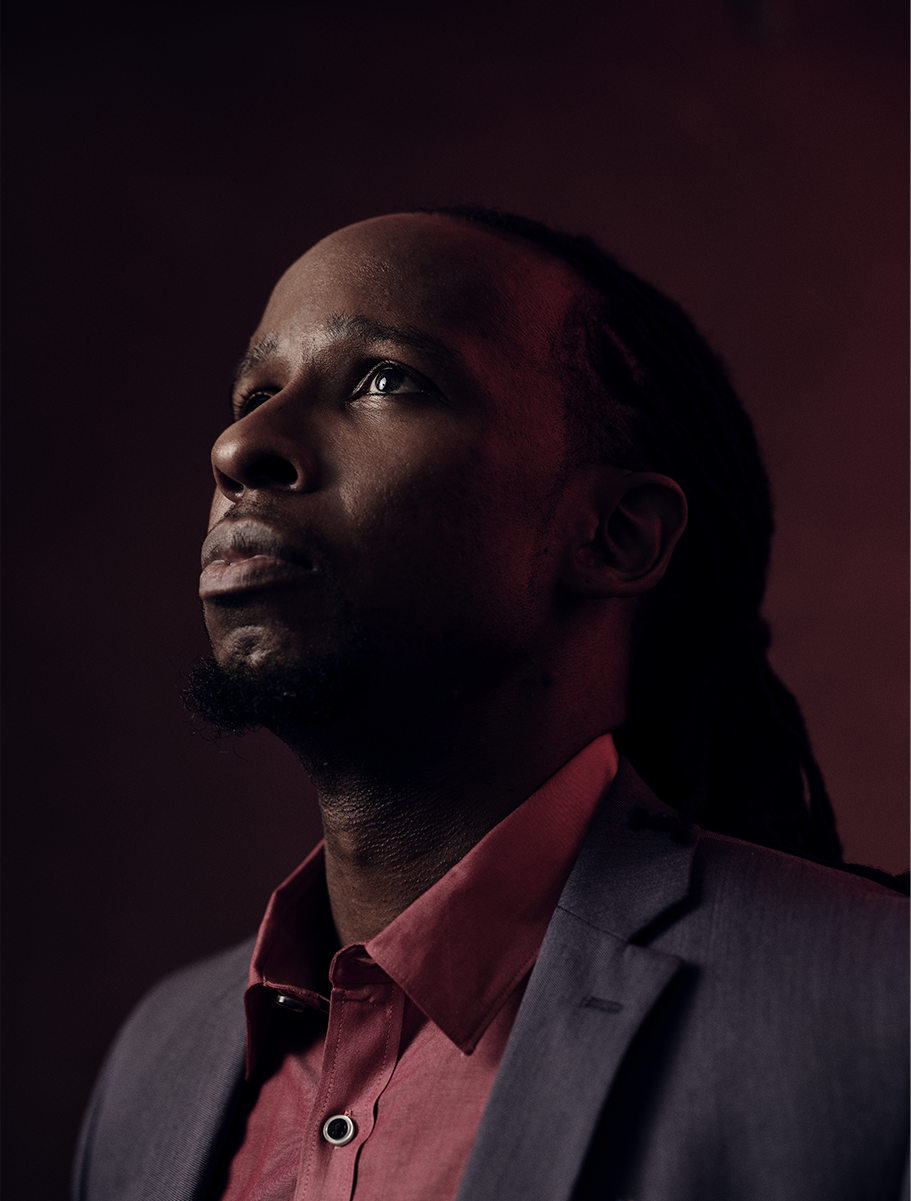- Home |
- Search Results |
- Meet the man who wants to change how you think about race

On 15 July 2019, less than 24 hours after Donald Trump tweeted to say that four of his political rivals, all women of colour, should ‘go back to the places from which they came,’ Boris Johnson and Jeremy Hunt appeared on stage for the latest debate in their battle to become Prime Minister. They were asked to respond to the President’s comments.
'Totally unacceptable,' said Johnson.
'Totally offensive,' agreed Hunt.
When pressed, what neither man was prepared to do that day – or when asked several times in subsequent interviews – was describe the President’s words as ‘racist’.
They were not alone. In the week that followed Angela Merkel, Theresa May, Justin Trudeau and Nicola Sturgeon were among the world leaders to condemn Trump’s remarks in a variety of ways. They said his words were an ‘attack’, stressed how much they ‘completely disagreed’ and spoke about how they, unlike him, valued ‘the strength of diversity’.
Still, when asked, no one would say the word.

How To Be An Antiracist, a new book by American professor Ibram X. Kendi, sets out to interrogate and ultimately reshape the vocabulary we use to discuss race.
‘There has always been an effort,’ he says, ‘in the United States and across the world, for people to not use the term racist. And that’s because denial of racism is the heartbeat of racism, from slaveholders saying “we’re civilising these people in America after the barbarism of Africa”, to Jim Crow segregationists saying “it’s separate but equal” to white nationalists today saying: “I’m not racist, and stop calling me that.”’
Kendi’s central argument, which runs like a cold, clear stream through the book’s exploration of complex topics like white nationalism, colourism (racism between Light and Dark people) and intersectionality, is that there is no such thing as being ‘not racist’ (or ‘colourblind’) – only being actively racist or actively antiracist, advancing racist ideas (or as he prefers it, ‘policies’) or antiracist ones. In Kendi’s view, there is no passive stance when it comes to the issue that haunts history and stalks contemporary life in America.
Kendi is unequivocal about language - the term ‘microaggression’, for example, is replaced in his worldview with simply ‘abuse’ - but his objective is to create a framework for discussion, not sticks with which to beat the unenlightened. On the contrary: when it comes to the individual and the capacity for each of us to slip into racist thinking, Antiracist is a book full of empathy.
Denial is the heartbeat of racism
'I think in the United States, and probably every country across the world, people are primarily trained and nurtured to be racist,' he says.
'We’re not taught to look at different racial groups as being on the same level. We’re not taught to be inclusive and accept immigrants who don’t talk and look like us. We’re not taught that the only cause of racial disparity in our society is racist policies.'
He is including himself. In Antiracist, we meet the author as a confused but defiant child being patronised by his schoolteacher. We are shown him as a callow, sententious student still ignorant to the ways sexuality and gender complicate and compound discrimination. In one chapter, called ‘Failure’, we see Kendi trying to rouse a group of fellow activists to a course of action they reject, leaving him bitter and angry. These biographical passages are lively, but never indulgent or distracting. Instead they are in service to his central rallying cry for constant, diligent self-examination.

'Like many others in the United States, I thought that one of the reasons why black people in particular had less was because there was something wrong with what we’re doing. And I took a journey to really get rid of those ideas,' he says.
'I wanted to show people how this truly is a journey, because the terms ‘racist’ and ‘antiracist’ are not fixed categories. They are not identities. They’re not tattoos. They’re a reflection of what we’re doing in the moment. If we’re supporting a racist policy, through looking away or actively supporting it, we’re being racist. If we’re expressing an antiracist idea or supporting an antiracist policy, in that moment, we’re being antiracist. And the next moment we could revert back. And so we literally have to struggle and strive each moment.'
There is a dexterity and crispness to the way Kendi writes that enables him to cover off several emotive and complicated ideas in a short space of time. The effect can be quite invigorating.
From the chapter ‘Biology’:
The word ‘racism’ went out of fashion in the liberal haze of racial progress – Obama’s political brand – and conservatives starts to treat racism as the equivalent to the N-word, a vicious pejorative rather than a descriptive term. With the word itself becoming radioactive to some, passe to others, some well-meaning Americans start consciously and perhaps unconsciously looking for other terms to identify racism.
This is as close as the book gets to a jeremiad. Instead, Kendi’s laser-focused criticisms of the causes of racial inequity are routed back, always, to the mantra of linguistic clarity, the importance of critiquing policy over people, the need to rethink racism outside of the heated sphere of personal emotion.
‘Racist’ and ‘antiracist’ are not fixed categories. They are not identities
In the aforementioned chapter in which Kendi recounts licking his wounds after failing to win over a group of activists, he considers the ineffectiveness of demonstration in which, he says, we ‘convince ourselves we are doing something to solve the racial problem when we are really doing something to satisfy our feelings’, leaving us ‘feeling fulfilled, like we dined at our favourite restaurant’.
The chapter includes an epiphany:
What if instead of a feelings advocacy we had an outcome advocacy that put equitable outcomes before our guilt and anguish? What if we focused our human and fiscal resources on changing power and policy to actually make society, not just our feelings, better?
This could easily be read as a critique of social media and ‘digital activism’, but those targets feel both too low and too easy for a book of Antiracist’s ambitions. Instead Kendi is issuing us with a rallying cry to follow pragmatism over emotion, to put our energies into challenging policies rather than making the case for how we feel. He is telling us to be smarter.

Another feature of Antiracist is the steady citation of the type of deeply flawed ‘academia’ which helped propagate racist ideas throughout history, for example: an influential 1951 study called The Mark of Oppression: A Psychological Study of the American Negro that presented as scientific fact the idea ‘self-hatred’ and ‘uncontrolled hostility’ were inherent aspects of ‘Black behaviour’. The study, Kendi reveals, was based on interviews with just twenty-five subjects.
Grotesque examples such as this are frequent, and one of the book's strengths is the way it quietly constructs the horror show of racial history. In this sense it follows on from his first book, 2016’s Stamped from the Beginning: The Definitive History of Racist Ideas in America.
‘My last book was a history of racist ideas from their origins in 15th-century Portugal, their emergence in Western Europe and their settling in colonial America,’ he says, ‘so of course I had to collect and analyse thousands and thousands of pages of many of the most horrific things that had ever been said about black people.’
As a professor, he spends much of his time teaching this type of material. I ask him what he makes of the popular criticism of American universities, and millenials in general, as ‘coddled snowflakes’ afraid of debating ideas they dislike.

‘I do think that in the US we have really gotten away from debating people we passionately disagree with – and this isn’t just among students, but people of all ages,’ he says.
‘But a lot of the reason for this is that these ideas we disagree with have a human cost. And so it’s hard to stand on the other side and debate someone in a civil manner when you know their ideas are lethal. People are killing people because of racist ideas.’
As we discuss this in London, America is reeling from two mass shootings in 24 hours in Texas and Ohio. Links between the shooters and white supremacy are being keenly debated, as is President Trump's culpability for inciting racial violence with tweets like that one his fellow world leaders refused to call ‘racist’. How strong really is the link between the way our leaders act and talk and the actions of people on the street?
We need to be continuously hopeful
‘I don’t think it’s an absolute link, because people on the street do think for themselves,’ Kendi says. ‘But on the other hand, leaders like Trump and Johnson with those massive bully pulpits are the producers, typically, or popularisers of racist ideas which people then carry into their every day lives.'
‘And they do it because they want those regular people to truly believe the cause of their struggles are people who don’t look like them, as opposed to the very policies those leaders support.’
‘Ultimately, I try to separate hope from current events. We need to be continuously hopeful we can create an antiracist society, because once we stop believing, racism will become permanent and guaranteed. We have to believe in the ability to change in order to bring it about.’
How To Be An Antiracist by Ibram X. Kendi is out now.